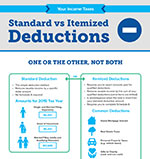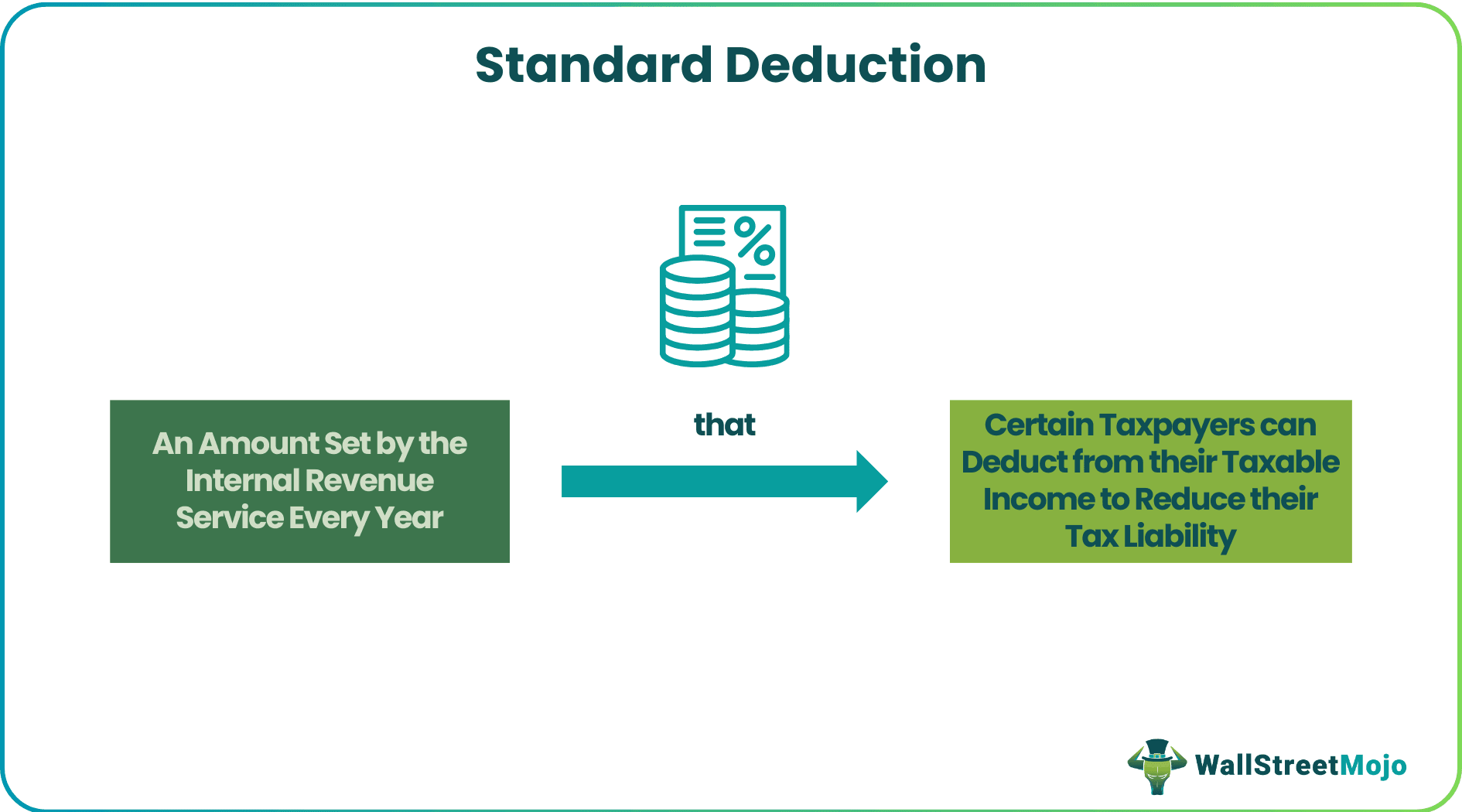The Foreign Earned Earnings Exemption Explained: An Overview to Enhancing Your Standard Deduction
The Foreign Earned Earnings Exemption (FEIE) is an essential tax stipulation for united state citizens and resident aliens living abroad. It allows qualified expatriates to omit a considerable part of their foreign-earned revenue from federal tax obligations. Recognizing the subtleties of FEIE can result in considerable tax financial savings. Nevertheless, several people ignore important information that might impact their eligibility and advantages. Checking out these aspects might expose chances for improved tax end results.
Understanding the Foreign Earned Revenue Exclusion
Several migrants seek chances abroad, comprehending the Foreign Earned Revenue Exemption (FEIE) is necessary for handling their tax responsibilities. This stipulation permits united state people and resident aliens living overseas to leave out a certain quantity of their earned earnings from federal taxes. The FEIE was developed to minimize the tax worry on individuals who stay outside the United States, acknowledging the unique monetary difficulties they may encounter.

Eligibility Demands for FEIE

How to Declare the FEIE
To successfully declare the Foreign Earned Earnings Exclusion (FEIE), taxpayers should initially validate their eligibility based upon particular criteria - FEIE Standard Deduction. The procedure entails numerous steps, consisting of submitting the ideal kinds and offering required documents. Understanding these procedures and requirements is important for taking full advantage of tax advantages while living abroad
Qualification Demands
Qualification for the Foreign Earned Revenue Exemption (FEIE) rests on conference certain requirements established by the internal revenue service. To qualify, people should be united state residents or resident aliens who make income while functioning abroad. They need to establish an international tax home, which suggests their primary workplace is outside the USA. Additionally, candidates must satisfy either the Authentic Home Examination or the Physical Presence Examination. The Bona Fide Residence Examination requires that a taxpayer lives in an international nation for an entire tax obligation year, while the Physical Existence Examination demands costs a minimum of 330 full days in a foreign nation throughout a 12-month duration. Satisfying these needs is important for asserting the FEIE.
Filing Process Steps
Exactly how can one successfully browse the procedure of declaring the Foreign Earned Revenue Exclusion (FEIE)? First, people must establish their eligibility based on the physical visibility examination or the bona fide residence examination. Once confirmed, they should complete internal revenue service Type 2555, which information international earnings and residency. This type has to be connected to their yearly income tax return, commonly Type 1040. It is important to accurately report all foreign earned income and guarantee conformity with the internal revenue service standards. In addition, taxpayers ought to keep appropriate documentation, such as international tax returns and proof of residency. By adhering to these steps, individuals can efficiently assert the FEIE and possibly minimize their taxable income significantly, improving their general monetary position.
Computing Your Foreign Earned Income Exemption
While lots of expatriates look for to maximize their financial advantages abroad, recognizing the computation of the Foreign Earned Revenue Exemption is essential for accurate tax reporting. The Foreign Earned Revenue Exclusion permits qualifying people to leave out a particular quantity of their international revenues from U.S. taxation, which is changed annually for rising cost of living. To determine this exemption, expatriates need to determine their total international made income, which typically includes salaries, salaries, and specialist costs earned while residing in a foreign country.
Next off, they must complete internal revenue service Kind 2555, providing information about their foreign residency and job condition. FEIE Standard Deduction. It's essential to meet either the bona fide residence test or the physical existence test to get the exemption. Once these variables are developed, the optimum allowable exemption quantity is applied, reducing the individual's gross income substantially. Accurate computations can cause considerable tax obligation savings for migrants living and working abroad
The Effect of FEIE on Various Other Tax Obligation Benefits
The Foreign YOURURL.com Earned Earnings Exemption (FEIE) can influence an individual's qualification for specific tax obligation benefits, including the conventional deduction. By excluding international gained income, taxpayers might locate their modified gross earnings influenced, which in turn can influence their credentials for numerous tax obligation credit scores. Comprehending these communications is crucial for maximizing tax obligation outcomes while living abroad.
Communication With Requirement Reduction
When individuals receive the Foreign Earned Income Exemption (FEIE), their eligibility for the basic deduction might be influenced, possibly modifying their total tax obligation liability. The FEIE enables taxpayers to leave out a specific quantity of earned income from U.S - FEIE Standard Deduction. taxation, which can bring about a decreased gross income. Therefore, if the excluded earnings surpasses the conventional reduction, it can reduce the advantage of claiming that deduction. Furthermore, taxpayers that make use of the FEIE might find that their capability to detail reductions is likewise influenced, as particular costs might be affected by the exclusion. Recognizing this interaction is essential for expatriates to optimize their tax benefits while ensuring conformity with united state tax obligation legislations
Qualification for Tax Obligation Credit Scores
Guiding via the intricacies of tax obligation credit scores can be testing for migrants, particularly since the Foreign Earned Earnings Exclusion (FEIE) can considerably impact qualification for these benefits. The FEIE permits qualified people to exclude a considerable part of their international revenues from united state taxation, however this exemption can likewise influence access to various tax credit ratings. Taxpayers that utilize the FEIE may discover themselves disqualified for credits like the Earned Income Tax Credit (EITC), as these credit histories normally call for taxable income. Furthermore, the exclusion may limit the capacity to declare particular deductions or credit ratings connected with dependents. Recognizing the interplay between the FEIE and available tax obligation credits is essential for migrants intending to optimize their tax obligation situation.

Typical Blunders to Avoid When Claiming FEIE
Commonly, expatriates experience several mistakes while claiming the Foreign Earned Earnings Exclusion (FEIE), which can lead to costly mistakes or missed out on chances. One constant blunder check my site is falling short to fulfill the physical existence or bona fide residence examination, which is crucial for qualification. In addition, migrants frequently overlook the requirement to file Kind 2555 properly, resulting in imprecise or incomplete entries.
One more typical mistake entails improperly determining foreign gained earnings, as lots of do not make up all appropriate income sources. Some expatriates erroneously think they can exclude all their revenue, uninformed of the limitations on the exclusion amount. In addition, disregarding to maintain appropriate documents, such as traveling dates and residency status, can jeopardize a case. Misconstruing the implications of the FEIE on other tax credit histories might lead to unintentional tax obligation obligations. Awareness of these mistakes can facilitate a smoother declaring process and maximize prospective benefits.
Resources for Expats Navigating U.S. Tax Obligations
Maneuvering united state tax obligation obligations can be challenging for migrants, especially after coming across risks in claiming the Foreign Earned Earnings Exemption (FEIE) To aid browse these complexities, a selection of sources are readily available. The internal revenue service web site supplies considerable information on tax obligation frequently asked questions, regulations, and kinds particularly tailored for migrants. Additionally, companies like the American People Abroad (ACA) and the Expat Tax Professionals offer assistance and assistance to ensure conformity with tax obligation regulations.
On the internet online forums and communities, such as the Expat Online forum, allow expatriates to share experiences and insights, cultivating a supportive atmosphere for those facing similar obstacles. Additionally, tax prep work software program, like copyright and H&R Block, usually consists of functions created for expats, making the filing process a lot more easy to use. Engaging with these sources can equip expatriates to much better comprehend their tax obligation obligations and optimize benefits like the FEIE.
Often Asked Questions
Can I Assert FEIE if I'M Independent Abroad?
Yes, independent people abroad can declare the Foreign Earned Revenue Exemption (FEIE) To qualify, they should meet specific demands regarding residency and earnings, guaranteeing they stick to internal revenue service guidelines for migrants.

Is the FEIE Applicable to Foreign Pensions?
The Foreign Earned Income Exemption (FEIE) is not suitable to foreign pension plans. Pensions are considered unearned income and do not a fantastic read receive the exemption, which particularly relates to gained revenue from work or self-employment abroad.
What Takes place if I Return to the U.S. Mid-Year?
They might require to readjust their tax obligation circumstance if a specific returns to the United state mid-year. Their qualification for sure deductions and exemptions, including the Foreign Earned Revenue Exemption, might be affected by their residency standing.
Can FEIE Be Reported With Other Reductions?
Yes, the Foreign Earned Income Exemption (FEIE) can be claimed along with other deductions. However, care should be required to ensure appropriate conformity with tax guidelines, as certain limitations may apply based upon specific conditions.
Exactly How Does FEIE Impact State Tax Obligation Obligations?
The Foreign Earned Income Exclusion can decrease a taxpayer's federal revenue tax obligation, however it does not instantly affect state tax obligation responsibilities, which vary by state and may still require reporting of international revenue.
Numerous expatriates look for chances abroad, understanding the Foreign Earned Earnings Exclusion (FEIE) is essential for managing their tax commitments. By omitting international gained earnings, taxpayers may discover their modified gross income influenced, which in turn can affect their certification for different tax credit scores. Steering with the intricacies of tax obligation credit ratings can be testing for expatriates, specifically because the Foreign Earned Income Exclusion (FEIE) can substantially affect eligibility for these advantages. Taxpayers that use the FEIE may locate themselves disqualified for credit scores like the Earned Revenue Tax Obligation Credit History (EITC), as these credit scores normally call for taxed revenue. Maneuvering U.S. tax obligation commitments can be testing for expatriates, specifically after experiencing pitfalls in claiming the Foreign Earned Earnings Exemption (FEIE)